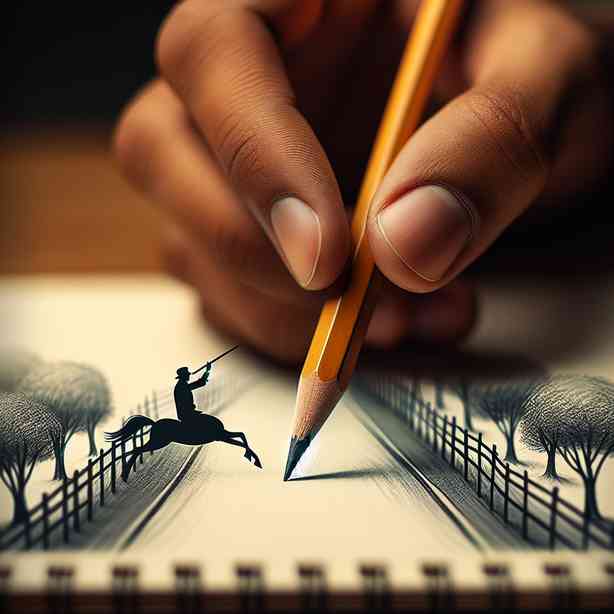
When Your Pencil Knew Before You Did
In a world burgeoning with technology, the simple act of writing with a pencil might seem quaint or even outdated. Yet, there exists a profound connection between a writer and their pencil that often transcends mere functionality. Writing is not just a physical act; it is an intimate process that bridges the gap between thoughts and expression. This relationship allows one to explore ideas deeply and can provide valuable insights in unexpected ways. The phrase “When your pencil knew before you did” suggests an intuitive relationship, where the act of writing becomes a pathway of discovery.
Historically, writing has been a means of recording human experience, transmitting knowledge, and conveying emotions. The pencil, with its humble graphite core and wooden casing, serves as an extension of the writer’s thoughts. It captures nuances that typed words may inadvertently lose. There’s something about the tactile nature of writing on paper that fosters a deeper connection to the subject matter. Every stroke becomes a dialogue between the pencil and the paper, illuminating thoughts that may not yet be fully formed in the writer’s mind.
When we write, whether it be poetry, prose, or personal reflections, our pencils weave a narrative that often feels autonomous. As we allow our pen to glide freely across the page, it is common to experience a state of flow, where ideas begin to unfold organically. This state can sometimes lead to unexpected revelations, whereby the pencil seems to guide the writer toward truths that were previously unknown. It is almost as if the pencil possesses a wisdom of its own, leading the writer on a journey of self-discovery.
Moreover, it is essential to acknowledge the emotional aspects of this process. Writing with a pencil can evoke a sense of nostalgia, a return to simpler times when creativity flowed more freely without the barriers of modern distractions. The act of sharpening a pencil, for instance, can be a meditative experience, providing a moment of pause that encourages deeper reflection. Each mark made on the page comes with an embedded memory, allowing the writer to relive moments of inspiration and insight. The pencil thus becomes a device not only for creating text but for connecting with one’s inner self.
Consider the role of drafting in the writing process. Many authors will affirm that their best ideas emerge during the preliminary stages of writing. Here, the pencil takes on the role of conductor, orchestrating chaos into cohesive thought. One may start with vague ideas scribbled in hurried bursts, but as the pencil moves across the page, those ideas often crystallize into clearer, more structured forms. This natural evolution of thought not only celebrates the unfolding of creativity but also underscores the importance of patience in the writing journey.
Furthermore, it is essential to recognize how this relationship can enhance our understanding of various subjects. Engaging with a topic through the medium of a pencil can evoke visceral responses that spark newfound interest and curiosity. For instance, an academic may find that the act of writing out complex theories allows for deeper comprehension and integration of knowledge. The pencil acts as a tool for exploration, transforming abstract concepts into tangible insights.
Writing, therefore, is not merely a skilled craft; it is a sacred ritual that fosters connections between the writer, the subject, and the audience. As one pours emotions and ideas onto the page, the pencil can act as a trustworthy companion, reflecting thoughts back to the writer in ways they may not have anticipated. It is within this space of creativity that epiphanies are born, where the pencil serves as a catalyst for intuition and insight.
As we navigate our lives and experiences, it is vital to make time for writing in a way that allows for true expression. In our fast-paced digital age, one might question whether traditional writing methods still hold relevance. Yet, the tactile joy of writing with a pencil encourages authenticity and vulnerability. It reminds us to reconnect with our inner thoughts, fostering a sense of clarity amidst the noise of modern life.
In conclusion, the expression “When your pencil knew before you did” embodies a profound exploration of self through the lens of creativity. It highlights the unique relationship between the writer and their chosen instrument, suggesting that the act of writing is a journey of revelation. As one writes, whether in solitude or amid bustling surroundings, the pencil becomes a partner in unveiling deeper truths waiting to surface. In embracing this relationship, we can harness the power of our thoughts and translate them into meaningful, impactful expressions that resonate with both ourselves and the world around us. The pencil, in its quiet wisdom, continues to be a timeless tool for reflection, discovery, and the art of storytelling.


